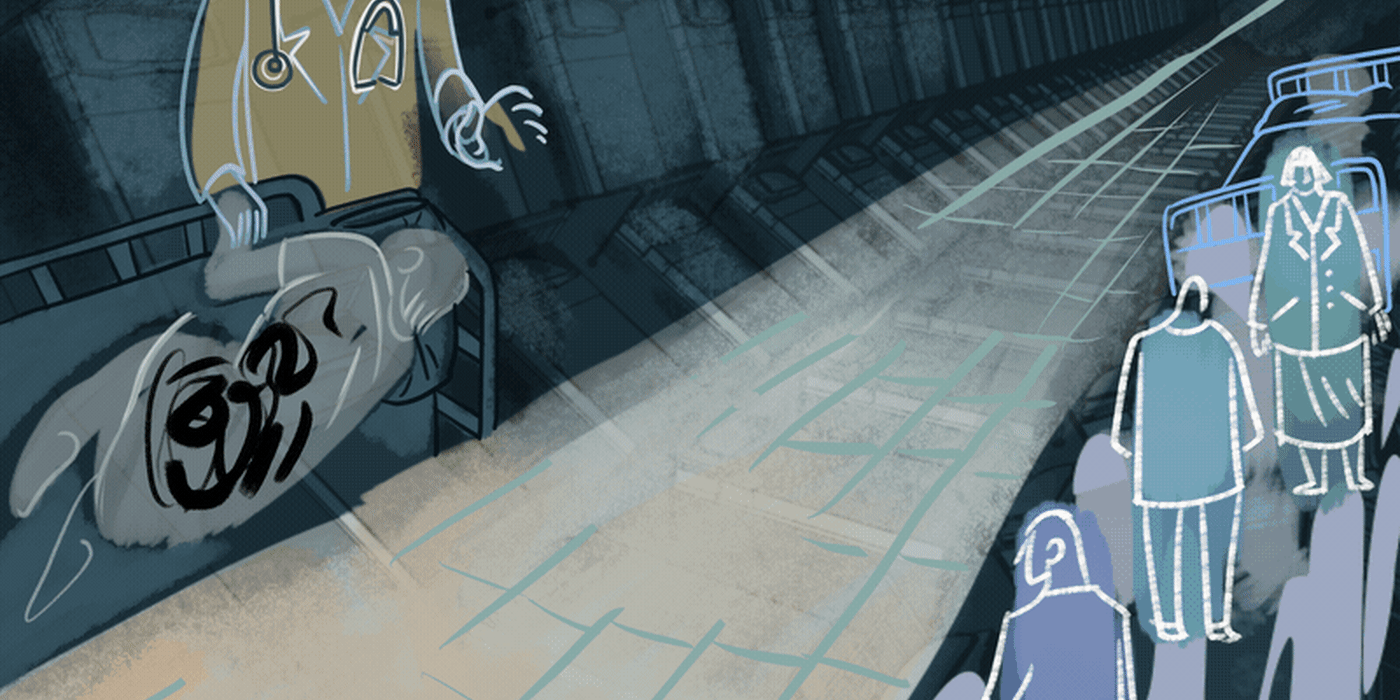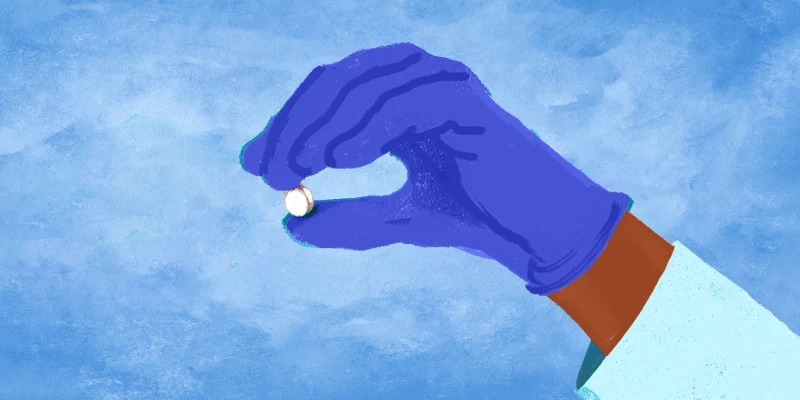
If you'd like to listen to the author read this story, click play.
I learned I was pregnant on a Tuesday, some months into my first year of medical school. I was hours away from home, spending the week in a Family Medicine practice doing physical exams and pretending, for all intents and purposes, to be a real doctor. It felt odd to examine everyone and make recommendations for their health when I could not pinpoint my own inconsistencies. For weeks, I felt invariably wrong in a way that I could not express. The cramps, the pain from standing for hours, the 10 days of bleeding that seemed like it would never come to an end. I would see the blood swirling in the toilet, pouring out of my body, and be filled with worry.
I grew up in a culture, like so many cultures, where women are not empowered to understand their gynecologic health. Even though I was a medical student, I wasn’t yet sure what to do. In the emergency room of the hospital, I asked gingerly for the Ob/Gyn on call. Someone asked me how far along I was. "I’m not," I said. I didn’t feel it. I was not along.
They drew my blood, swirled it in a small machine, separated it, quantified it, and came back with some numerical reply. I heard what I had known and felt in the pit of my stomach, what had been seeding inside me for weeks. The bleeding was now on its 14th day and might continue well into the next two weeks. The tissue was passing in clots, the blood in pools, and then it would be over and I would not be pregnant anymore. A small part of me didn’t want the bleeding to stop, to peter out as my body recovered, returning to itself. Bleeding meant that it had happened, was happening in this very moment, and I could not escape it.
A week later, I was back in anatomy lab. I had been visiting my doctor every other day to measure my hCG levels. They had stopped dropping. Despite the bleeding, I was not having a miscarriage, my doctor explained. My uterine tube had ruptured; I had been internally bleeding for a week and surgery was imminent.
I was a first-year medical student with an anatomy exam on Monday. I asked to put off the surgery until then. She shook her head at me, and explained gently, "If I let you go home today, you might die."
In the hospital, I called my family from preop. They were panicked to say the least, but I felt strangely content. As I went to sleep, eyelids drooping with the anesthesia, I felt certain that this was the end. I would never be a doctor, and that was somehow fine.
After the surgery, I asked if I had died. The nurses thought it was funny, but I was serious. I didn’t know. What does the afterlife look like? I only had my Pharaonic ancestors’ descriptions for reference, but maybe they were wrong and the afterlife is just a hospital or wherever you left off. All I knew was that I’d never had surgery before, that this was the most terrifying, emotionally draining day of my life.
That night my heart would swell with sorrow in a way I could not control or even understand. The mind goes mysterious places, roaming the corners of our imagination, developing its own sense of what is meant for us before our bodies have time to breach the distances, reaching a contradicting reality.
There's a beautiful moment in Abraham Verghese’s "Cutting for Stone" where Shiva, one of the two brothers trained as surgeons in such different ways, helps his adoptive mother, an ob/gyn, repair a woman's genitourinary system in his Ethiopian village for the first time. The woman is really just a girl, not much older than Shiva, who has suffered serious obstetric trauma. For years, she consistently leaks urine, soaking her clothes, and becomes an outcast in her community. Shiva is attentive to her with a profound awareness of the shame she feels about her womanhood. I related to that shame vividly.
I ended up leaving medical school for the rest of that year. I realized how much I wanted to be for other women what my doctor had been for me. As a third-year medical student, I found myself seeking opportunities to contribute to women’s health. I started teaching refugee women about contraception and other women’s health topics of interest to them. I invested my time in gynecologic operations. I remembered the swirling emotions I felt as a patient, before my surgery and after it. I learned from my patients the way to feel whole again, to recognize the body’s limitations, and to keep your dignity.
Even now, I think often Verghese's description of Shiva's compassion, its significance as his motivation for developing his surgical abilities. Before the symphony of technical movements — incisions, sutures, and knots — comes the patient. One day, I will operate alone and remember being in her shoes: the month of feeling unwell, unexplainable beyond knowing the rhythm of one’s own body; the hospital, sterile and clean with its warm physicians; the practice where I was rehearsing being a doctor. In this space, the memory is a glimpse into a future where I am the doctor caring for someone else with my own two hands, my fastidiousness another vessel for my empathy.
Mariam Gomaa is a 2018-19 Doximity Author and the author of Between the Shadow & the Soul (Backbone Press). Her work has appeared in the New York Times, TIME, NBC, BBC, xoJane, Readings for Diversity and Social Justice, and more. She is an alumna of Wake Forest University School of Medicine and Northwestern University. This summer she will start her ob/gyn residency at Howard University Hospital.
Illustration by April Brust




